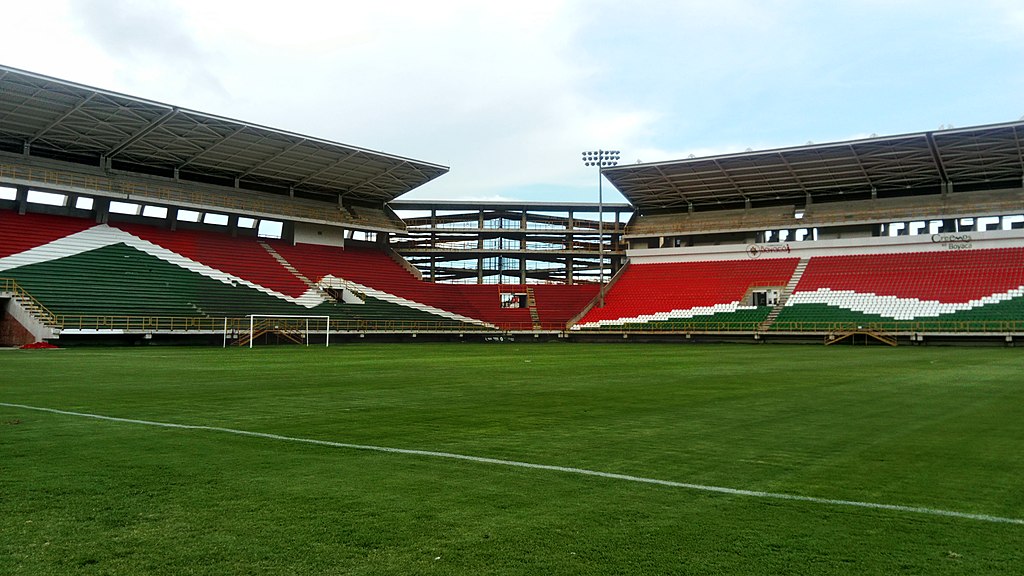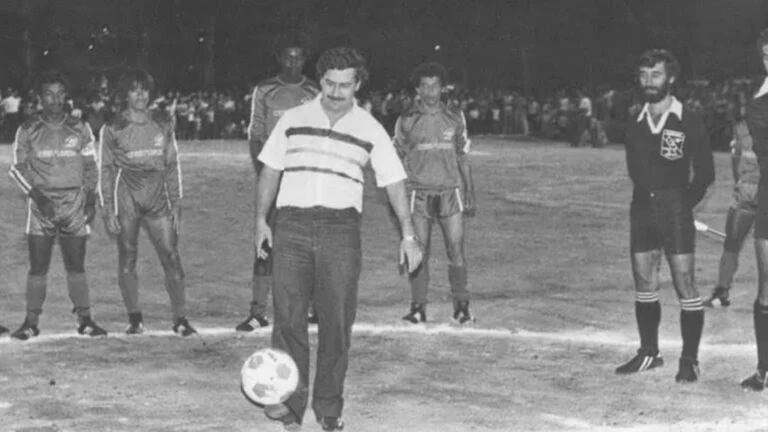
As happened four decades ago, during the golden age of the drug cartels, today the country is facing serious allegations of corruption and match-fixing in Colombian soccer. These allegations are not new, and have been hanging like a sword of Damocles over the game in Colombia for some years now.
However, the recent affirmations of journalist Carlos Antonio Velez, in his program on RCN’s Antena 2, that the actions of certain players and referees that could have altered the results of some soccer matches are being investigated, have once again cast doubt on the decency of the Colombian soccer competition.
Buying matches to benefit bets
The veteran Colombian sports journalist stated that “a group of gamblers called a player to help change the result of a match and convinced other teammates to help”.
Specifically, Velez’s accusations point to the behavior “of several players and referees in two matches of the Colombian league played by the Patriotas de Boyaca team”. The investigation concerns the possible manipulation in two matches of the Colombian league in which the Patriotas de Boyaca team participated, and the inquiries point to the complicity of players and referees with illegal betting networks.
Regarding these serious accusations, Cesar Guzman, president of the Patriotas de Boyaca team, responded that the club asked the Colombian Football Federation for the VAR audios of the two games of which they are suspicious, but they were not delivered.
Among the facts that are being investigated are a change of referee and the accusation that a player was invited to simulate a foul in order to collect a penalty. It has also been reported that five players have been called to testify in connection with the case, and one has been temporarily excluded from the club’s training sessions.
Previous complaints
The denunciation of these alleged irregularities is not something new, as there have been suspicions and accusations for at least four years about possible rigging of results. For example, last year, the Boyaca Chico club reported that a team member had been offered money before the match against Deportivo Cali on the 20th date of the League.
Nicolas Pimentel, president of the denouncing team, indicated that there are foreign groups participating in illegal betting in Colombian soccer, and that this is the origin of the offers and the purchase of a player from his team. He also reported that the player in question, whose identity is unknown, has received threats.
“We talked to the player and he has just been threatened, and his family, if he opens his mouth again. That’s not a bookmakers’ issue…. In 2020 we suffered a similar issue and my dad met with a person who informed him that Russian and Mexican groups were betting on Colombian soccer…. Let the Prosecutor’s Office and Dimayor (Colombian soccer federation) use their tools to trace this call that the player received and find out who it was.” said the sports leader in the program Equipo F of the television channel ESPN.
Echoes of a dark past
It was precisely sports betting that led to the murder of Colombia’s international soccer player, Andres Escobar, in 1994. The Club Atletico Nacional player was assassinated by a hitman hired to kill him after the match in which he scored an own goal in the World Cup in the United States that year, against the host team. That goal, which knocked Colombia out of the tournament, had allegedly caused large betting losses among several powerful drug traffickers. However, there are more than a few who believe that his death had more to do with the climate of high tension within Colombia at the time, and that the own goal played only a secondary role.
The reality is that in those years, drug money dominated Colombian national soccer. The impact of drug trafficking even paralyzed Colombian soccer: in 1989, the murder of a referee by drug traffickers completely suspended the country’s professional league tournament, leaving the championship title vacant for the first time in its history.
This murder was compounded by events such as the 20-hour kidnapping on November 2, 1988 of referee Armando Perez, who was threatened with death by a group of men who presented themselves as representatives of various professional clubs in Colombia. However, the allegations of corruption had been going on for a long time.
When the narco was in charge of soccer
In 1983, then Justice Minister Rodrigo Lara Bonilla publicly exposed the infiltration of drug trafficking in the Colombian soccer clubs Atletico Nacional, Millonarios, Santa Fe, Deportivo Independiente Medellin, America de Cali and Deportivo Pereira. The government expanded the list to include the teams Deportes Tolima, Quindío and Unión Magdalena. At the time, the leader of the country’s soccer federation, Jorge Correa Pastrana, stated that he lacked evidence of the minister’s claims.
The Medellin cartel had a strong influence in the Antioquia teams: Atletico Nacional and Deportivo Independiente Medellin; Rodriguez Gacha maintained power in Millonarios. On the other hand, the Cali cartel exerted its influence in América de Cali and dealt with Deportivo Cali.
Drug traffickers also exerted influence on the Colombian national soccer team, including players, coaches, sports officials, shareholders, and matches of all kinds of competitions.
On the other hand, many Colombian professional soccer players have been involved in drug trafficking. Names such as Mauricio Serna, Jhon Viafara, Omar Dario Cañas, Diego Leon Osorio, Wilson Perez, Jhon Jimenez Guzman and Felipe Perez were in one way or another related to this criminal practice and have been convicted for it.

See all the latest news from Colombia and the world at ColombiaOne.com. Contact our newsroom to report an update or send your story, photos and videos. Follow Colombia One on Google News, Facebook, Instagram, and subscribe here to our newsletter.

